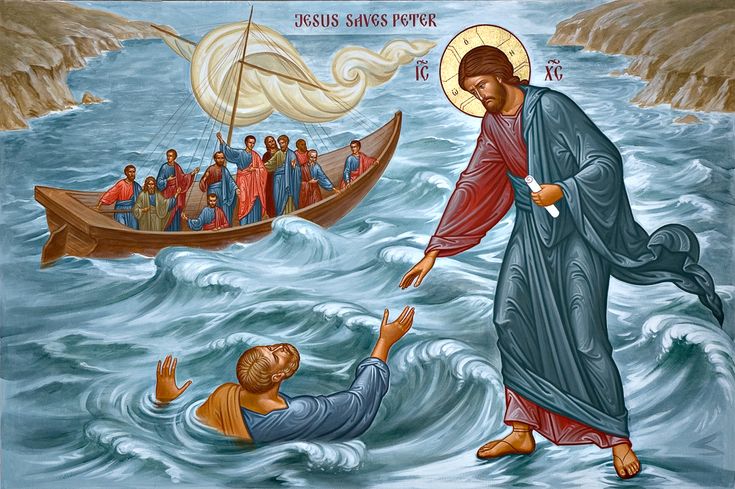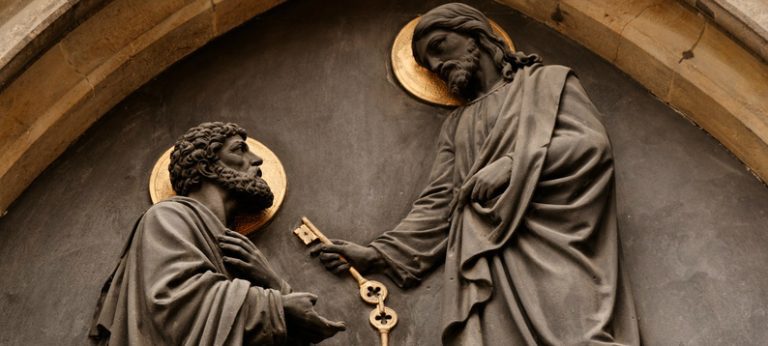Lots of Christians read the Book of Revelation. Isaac Newton fixated on it, and thought he could explain it in historical terms. Many others have done the same.
After it is studied, no matter how extensively, there isn’t much agreement on it. In a simple overview, it makes sense. Judgment is coming. Soon, it will be here. After Judgment, the end.
Catholic Fundamentalism’s view of Babylon in the Book of Revelation sees Chapter 18 in a new way. The fascinating chapter includes v. 17-24; the beginning of which describes the destruction of Babylon.
The passage begins, interestingly, with an interesting, inclusive word describing those who will not be destroyed: “All the captains and seafaring men, sailors and all (again, not some, but “) those who make a living from the sea will be keeping a safe distance, watching the smoke as she (Babylon) burns.”
We know what “captains, seafaring men, and sailors” are. But, who are ” the sea. Who, besides captains, seafaring men, and sailors make a living from the sea?
Those involved in occupations connected with the sea, but who are not necessarily on the sea, are making a living “from the sea”. Though they are not “seafaring men”, they, too “will be keeping a safe distance, watching the smoke as she (Babylon) burns.”
Shipbuilders, sail makers, and even those who mine and forge the iron for ships’ nail, screws, and anchors, are not at sea. No matter. They will be at a “safe distance”, even though they may be right in the middle of the burning city.
Catholic Fundamentalism’s view of Babylon in the Book of Revelations looks at the Iron Age passage from our vantage point in the Age of Electron Control. We can readily see that Babylon perfectly describes a very large computer system that, with some operators and programmers, has been corrupted. The Repairman is called. He knows that the errors have taken on a life of their own. The errors are running the computer and have corrupted the files. He “scrubs” the memories. He erases the errors. He purges the files. He fires those who intentionally entered errors.
Nearby people (human programs) in the the office may be aware that The Repairman is purging corrupted programs, human and otherwise, from the system. They go on with their own work. Those uncorrupted human programs who are able to make a living by adding actual value without letting themselves be corrupted are: “all those who make a living from the sea.” They are not fired (in the very largest sense of the word) by The Repairman, Who often smiles kindly at them while He goes about His sometimes bloody work.
In every age, those who corrupt operating systems are purged. Similarly, those who have let their own operating systems become corrupted must be erased. What, in the Iron Age, was described as Babylon, is now easily seen as a very large computer or organization whose files, programs, programmers, and operating system have become so corrupted they must be removed.
The Book of Revelation tells us that those of us who do useful things are “making a(n honest) living from the sea.” We who make an honest living from the sea and keep ourselves free from corrupting errors hope to avoid erasure.
The best and safest way to avoid the corruption that makes someone ask The Repairman to purge, fire, or erase us is to believe in God and obey His teachings. The easiest way to do that is to be a practicing Catholic.
Those who readily grasp Catholic Fundamentalism’s view of Babylon in the Book of Revelation may know others whom it would benefit. There are many lapsed Catholics who don’t yet realize that The Church is very, very far ahead of where they think She is.
Catholic Fundamentalism may have some of the answers for which they seek.








